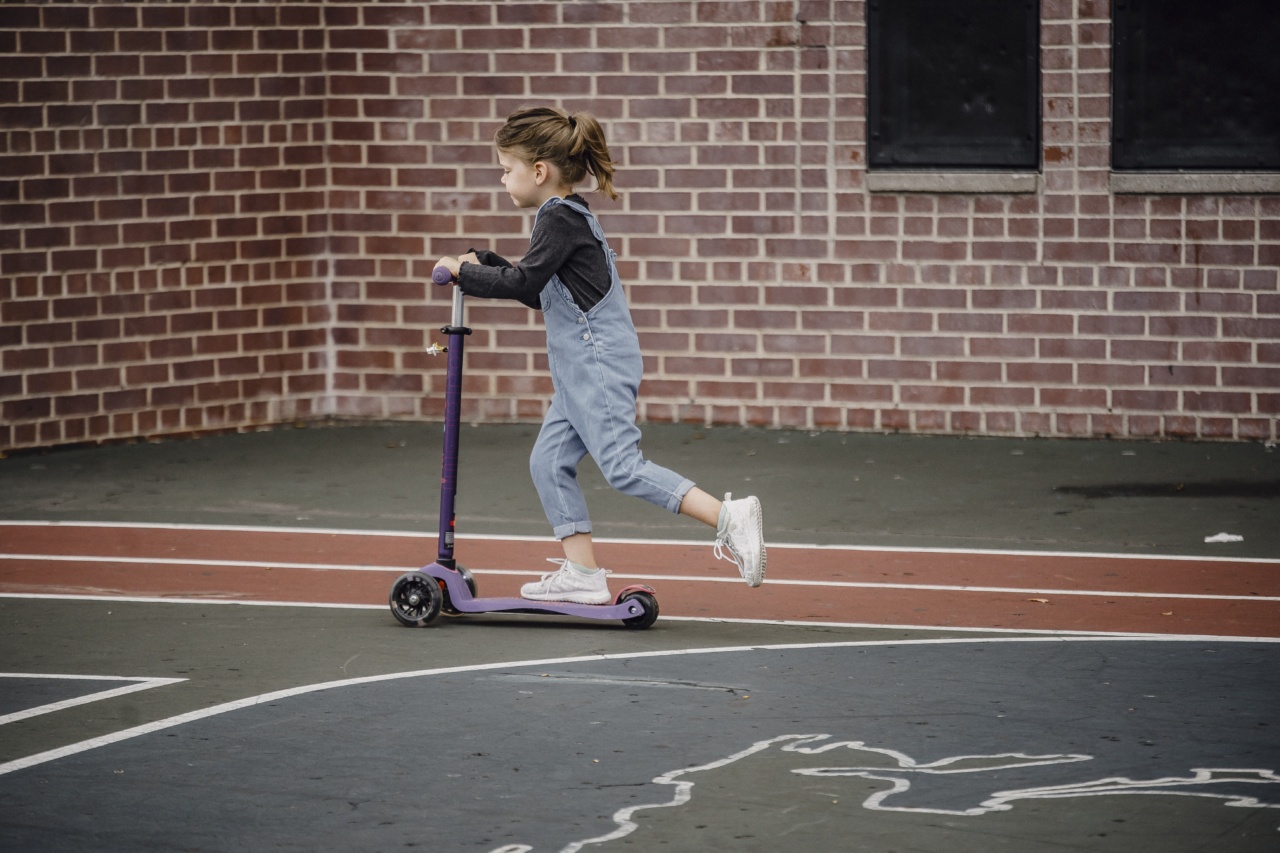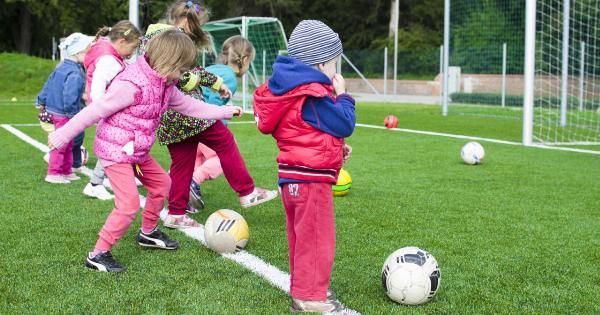Sports play a vital role in the development of a child. Engaging in physical activities not only helps in maintaining fitness but also contributes to building character, enhancing social skills, and promoting overall well-being.
However, finding the right balance between sports and other aspects of childhood is crucial to ensure that children have a well-rounded and enjoyable upbringing.
The Benefits of Sports for Kids
Sports offer numerous benefits to children, both physically and mentally. Regular participation in sports helps in:.

Promoting Physical Fitness
One of the most apparent benefits of sports for kids is the promotion of physical fitness. Regular physical activity strengthens bones and muscles, improves cardiovascular health, and enhances coordination and motor skills.
Through sports, children develop healthy habits that can last a lifetime.
Building Character
Sports teach children important life skills such as teamwork, discipline, perseverance, and leadership. These skills are essential for success both on and off the field.
By overcoming challenges and working towards common goals, children develop qualities that shape their character and prepare them for future endeavors.
Enhancing Social Skills
Participation in sports provides opportunities to interact with peers and adults in a structured environment. Children learn how to communicate effectively, cooperate, and build relationships with teammates and opponents.
Sports encourage respect, empathy, and healthy competition, enhancing their social skills and fostering positive relationships.
Boosting Mental Health
Sports have a significant impact on a child’s mental well-being. Physical activity releases endorphins, which are known to elevate mood and reduce stress. Regular exercise reduces the risk of anxiety and depression, promoting better mental health.
Additionally, the sense of accomplishment gained through sports can boost a child’s self-esteem and confidence.
Limitations and Challenges
While sports offer numerous benefits, it is important for parents and caregivers to recognize the limitations and challenges that may arise when kids are overly focused on sports. Some common limitations include:.
Academic Performance
Sometimes, excessive involvement in sports can negatively impact academic performance. When children spend a significant amount of time and energy on sports, they may have less time for studying and completing homework.
It is crucial to find a balance that allows children to excel in both academics and sports.
Physical Demands and Risk of Injury
Intense sports training and competition can place significant physical demands on a child’s body. Overtraining or specialization in one sport can increase the risk of overuse injuries.
Parents and coaches should ensure that children have appropriate rest periods, cross-train, and follow safe training practices to minimize the risk of injury.
Pressure and Burnout
The intense pressure to excel in sports can lead to burnout and negative psychological effects on children. When sports become overly competitive or demanding, children may lose interest, experience stress, or develop anxiety.
It is essential to create a supportive environment and encourage a healthy relationship with sports to prevent burnout.
Finding the Right Balance
When it comes to sports and childhood, finding the right balance is key. Here are some strategies to achieve a healthy equilibrium:.
1. Prioritize Academic Commitments
Educational goals should always be a priority. Encourage children to complete their schoolwork and allocate specific time for studying.
By emphasizing the importance of education, kids can learn to manage their time effectively and avoid neglecting academics due to sports.
2. Offer a Variety of Activities
While sports are beneficial, it is essential to expose children to a variety of activities. Encourage them to explore interests beyond sports, such as music, art, or other hobbies.
This diversification ensures a well-rounded childhood and prevents over-specialization or burnout in a single area.
3. Allow for Free Play
Unstructured playtime is crucial for a child’s development. It fosters creativity, imagination, problem-solving skills, and social interactions.
Balance organized sports with enough free playtime, where kids can choose their own activities and engage in spontaneous play with friends.
4. Set Realistic Expectations
Parents and coaches should set realistic expectations for their young athletes. It is important to emphasize enjoyment, personal growth, and skill development rather than solely focusing on winning or achieving specific performance milestones.
This reduces pressure and fosters a healthy attitude towards sports.
5. Monitor Physical and Emotional Well-being
Parents should regularly assess their child’s physical and emotional well-being. Look out for signs of exhaustion, stress, or declining interest in sports.
Address any concerns promptly and encourage open communication, ensuring that children feel comfortable discussing their experiences and feelings.
Conclusion
Finding the right balance between sports and childhood is essential for a child’s overall development and well-being.
Sports offer numerous benefits, but it is crucial to avoid overemphasizing them at the expense of other important aspects, such as academics or free play. By prioritizing education, fostering a positive attitude towards sports, and allowing for a well-rounded childhood, children can enjoy the best of both worlds – reaping the rewards of sports while savoring the joy and freedom of childhood.































